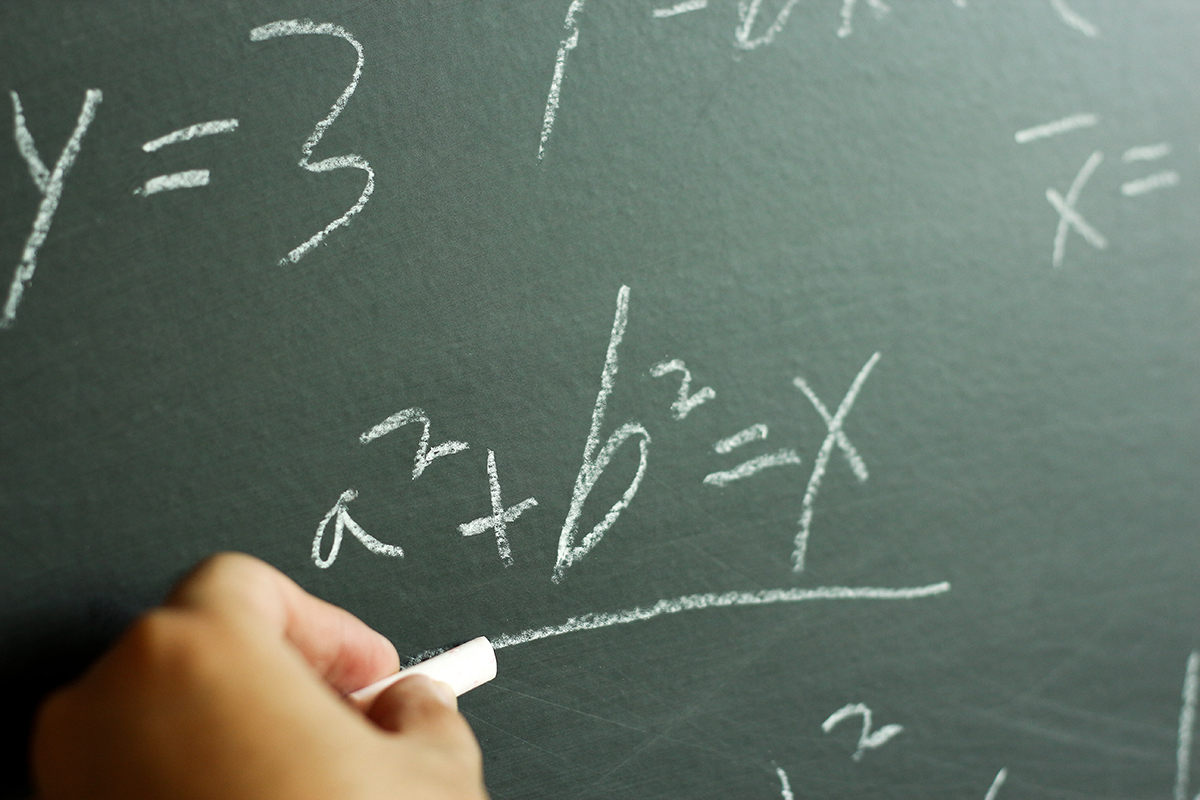
$15,000 scholarships will be available to students who train to teach math in high-need schools.
An interdisciplinary team of Texas Tech University faculty received $1.4 million through the National Science Foundation's (NSF) Robert Noyce Teacher Scholarship Program. With the funding, Texas Tech will place 27 high school math teachers in high-need schools in West Texas and surrounding areas.
The funding continues the current Texas Tech Noyce Scholars (TTNS) program, which aims to build a diverse and high-quality talent pool of teachers by encouraging an interest in teaching among undergraduate students in science, technology, engineering and math (STEM) disciplines. The program is administered by the Center for the Integration of STEM Education & Research (CISER), housed in the College of Education.
Junior and senior students can receive up to $15,000 in financial support annually to complete a certification program to teach high school math. For each year of scholarship support, the student must agree to teach for two years in a high-need school district.
"We're delighted to get this grant because the region needs more math teachers," said Jerry Dwyer, director of CISER and lead principal investigator on the grant. "The focus on mathematics is in direct response to the Lubbock Independent School District's concerns that they have a shortage of high-quality, trained mathematics teachers. This funding from the National Science Foundation will allow us to produce high-quality teachers who have trained specifically in the type of mathematics taught in high school."
The scholarship opportunity is a partnership between Texas Tech, Midland College and South Plains College. Students from all three institutions are invited to apply.
"West Texas is an area built by and heavily dependent upon the expertise of STEM scholars," said Margaret Wade, dean of math and natural science at Midland College. "It is our STEM teachers who inspire and provide the foundation for the leaders of tomorrow. A strong STEM educational program is critical. This Noyce grant will allow the partners to provide the training and experience needed to develop tomorrow's teachers. Midland College is excited to be a partner."
Scholars will complete a Bachelor of Science in Multidisciplinary Studies degree with a secondary mathematics certification. However, with approval from program coordinators, scholars can elect to pair the teaching certification with a bachelor's degree in math and an education minor.
To help recruit students, Texas Tech will establish a learning assistant program, a unique real-world teaching experience designed for first- and second-year undergraduate students. The learning assistant model was pioneered at the University of Colorado Boulder in 2003, and this will be one of its first pilots at Texas Tech.
"The use of the learning assistant model is a novel component of our effort to increase the number of diverse STEM undergraduates who choose a career in secondary mathematics teaching education," said Texas Tech Provost Michael Galyean, a co-principal investigator on the grant. "Learning assistants are undergraduate students who will assist instructors and teachers in college and high school classrooms by interacting with students in the class to help facilitate problem solving and explain conceptual learning at a small-group level. This kind of real-world experience should allow our learning assistants to 'test drive' a potential career in mathematics teaching education and increase the likelihood of them ultimately choosing this career path."
Researchers will evaluate the scholarship program outcome through surveys, interviews, document analysis of research reports and questionnaires. The results of the research and evaluation will inform the recruitment and support of preservice secondary math teachers in programs across the country.
The multidisciplinary team of researchers stretches across Texas Tech's College of Education, College of Arts & Sciences and Office of the Provost. In addition to Dwyer and Galyean, the team includes Brock Williams, a professor in the Department of Mathematics and Statistics; Jessica Gottlieb, an assistant professor of STEM education in the Department of Curriculum and Instruction; Jill White, a research associate for CISER; Barb Moskal, a research professor for CISER; and Raegan Higgins, an associate professor in the Department of Mathematics and Statistics.
"Many districts, particularly those who serve large populations of underrepresented students, struggle to hire enough qualified teachers in the STEM disciplines," Gottlieb said. "STEM teachers also are likely to have many career options outside of teaching. This means that students who have traditionally not always had access to high-quality STEM learning opportunities – such as low-income or minority students – may not have an effective science or math teacher. As a field, we need to continue to explore how we can use different mechanisms, including scholarships and learning assistant programs, to expand the pool of prospective teachers and ensure that they can complete their training and enter a classroom where they are most needed."
About the NSF's Robert Noyce Teacher Scholarship Program
The National Science Foundation's Robert Noyce Teacher Scholarship Program seeks to encourage talented STEM majors and professionals to become K-12 mathematics and science (including engineering and computer science) teachers. The program invites creative and innovative proposals that address the critical need for recruiting and preparing highly effective elementary and secondary science and mathematics teachers in high-need local educational agencies.
